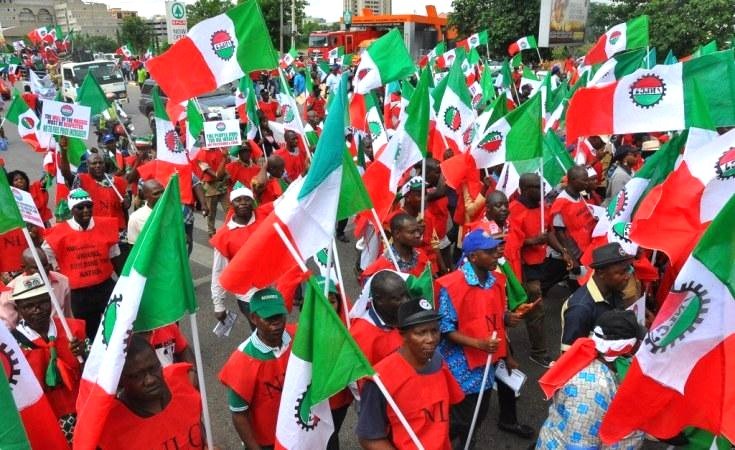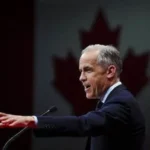Ayo Oyoeze Baje
” Do not muzzle an ox while it is treading out the grain, for as the Scripture says, ‘ the worker deserves his wages'”- Timothy 5:18 ( The Holy Bible )
The celebration of the annual Workers’ Day on the 1st of May, 2025, has come and gone, as usual, with the well-crafted promises from the political leaders to cater for their welfare. Yet, the painful reality is that of months of unpaid salaries of the seventy thousand (N70,000 ) minimum wage across several states of the country. It would be recalled that yours truly raised a timely alarm over unpaid
workers’ salaries in 23 out of the 36 states, through an opinion essay as published in the media on June 22, 2015. The aim was to bring to the forefront the importance and imperative of meeting the workers’ welfare, as expected. The article was titled: ‘ The National Shame of Unpaid Salaries ‘. It was also meant to alert the state governors on the critical roles played by the workers, as catalysts who drive the government’s policies, at all levels. The neglect or delay in the payment of their salaries and other emoluments is, therefore, considered not only absurd but an act of sheer wickedness on the part of the paymasters, who are living large on our common patrimony.
In the light of the above -stated it is worrisome that some ten years later, precisely in April 2025 the piece of trending news is the lamentation on the part of the National President of Nigerian Union of Local Government Employees ( NULGE ) that as many as 20 states are yet to implement the payment of N70,000 minimum wage for local government workers and primary school teachers! Can you imagine that under the prevailing harsh economic situation in the country? How do such governors expect the workers to cope with the highest inflation rate of over 28%, with the spin-off effects on the costs of transportation, food items, electricity tariff, school fees, rent and healthcare delivery?
Top amongst the states listed are Yobe, Gombe, Zamfara, Kaduna, Imo, Ebonyi, Cross River, Borno and the Federal Capital Territory FCT, Abuja. Yet, when Mr President signed the Minimum Wage Act, 2024 into law on July 29, 2024, he urged the states to commence the implementation of the new minimum wage. Amongst the states that have so far complied with the directive are Lagos, Rivers, Bayelsa, Enugu, Niger and Akwa Ibom. Others include Adamawa, Anambra, Jigawa, Gombe, Ogun, Kebbi, Ondo and Kogi. This sad situation sparks off some burning questions.
For instance, Nigerians deserve to know what has happened to the trillions of naira of the so-called monthly allocation from the Federation Account to the states since July of the previous year, when the payment of the minimum wage was empowered by the Act? It would be recalled that as at September 2024, a total of the humongous sum of N1.203 trillion was shared among the three tiers of government as their part of the Federation Account for August 2024, from a total of N2.278 trillion. That was according to the Minister of Finance and the Coordinating Minister of the Economy, Ale, who was at the meeting of the Federation Account Allocation Committee ( FAAC ). What about their state’s Internally Generated Revenue ( IGR )? Or was there none of such? What massive capital projects did they embark upon that must have led to the sudden cash squeeze? What magic wand did the 16 other states that have paid their workers the minimum wage use to save the workers from the mass misery in the country?
Credible answers to these important questions have become necessary because leadership is all about the enthronement of the key element of trust. Besides that is a need for such a leader to put on his thinking cap while prioritising the needs of the led majority of people. And that should always dovetail to their welfare. The recurring and scandalous issue of unpaid salaries has exposed the wrongs inherent in our current democratic system and structure. As one of the highlights a decade ago, ” The reward and payment structure in our dysfunctional polity is obscenely skewed in favour of political office holders. That explains why the ambition of the average Nigerian politician to mount the pedestal of power is about harnessing as much of the public money as possible.
Added to the pains of unpaid salaries to the current workers is that of the aged and sick retirees yet to be paid their terminal benefits. While some of them are left to queue for hours on end to be paid the insulting peanuts, others are either battling with debilitating diseases such as arthritis, glaucoma, diabetes, and cancer, others have long died, leaving members of their families stewing in misery and deprivation.
It would do the states and the nation at large a world of good to ensure that the workers are paid their salaries and allowances as due. Doing so would bolster their confidence in the state and bolster their confidence to sacrifice their sweat to oil the engine of socio-economic development. Without them seeing to the day-to-day operations of the state, there would be no taxpayers’ money to pilfer and pillage. As consistently highlighted, it is a collective insult on the psyche and souls of the workers to be treated as slaves in a God – blessed country where the leaders preach but refuse to practise an egalitarian society of equity and justice.
The best way forward out of the recurring issue of unpaid salaries is to glean lasting lessons from African countries with the highest paid workers, such as Morocco, South Africa, Tunisia and Kenya, where the average monthly salaries stand at $2,031, $2,026, $1,348 and $1,219 in that order. Apart from the high pay packages, the payment of salaries is of utmost priority to the leaders. This boosts the moral confidence of such workers in their leaders, prompting them to do their best. Also, it is unheard of in those countries to talk about the Federation Account. Over there, the state governors do not go cap-in-hand to the federal centre to share state funds every month. Rather, they are allowed to look inwards to generate their funds for payments of monthly dues to the workers and to run their governments.
The call for a holistic restructuring of the country with true fiscal federalism, through which the states or regions raise funds for their needs by controlling their God- given resources,s has therefore become an imperative to drive Nigeria forward. That was how it played out in this same country back in the Sixties, such that the Chief Obafemi Awolowo-led Western Region achieved Free Education, constructed good access roads, established agricultural centres as the base for industrialisation with revenues from cocoa. So it was for the Dr. Michael Okpara-led Eastern Region that had the fastest developing economy amongst the Commonwealth group of nations, with revenues from oil palm and rubber. And the Sir Ahmadu Bello-led Northern Region boosted their economy with revenues from cotton, hides and skins and of course, the groundnut pyramids.
One hopes, and fervently too that all these would serve as food-for-thought for the Bola Tinubu-led government to muster the political will to do the needful while time lasts.







